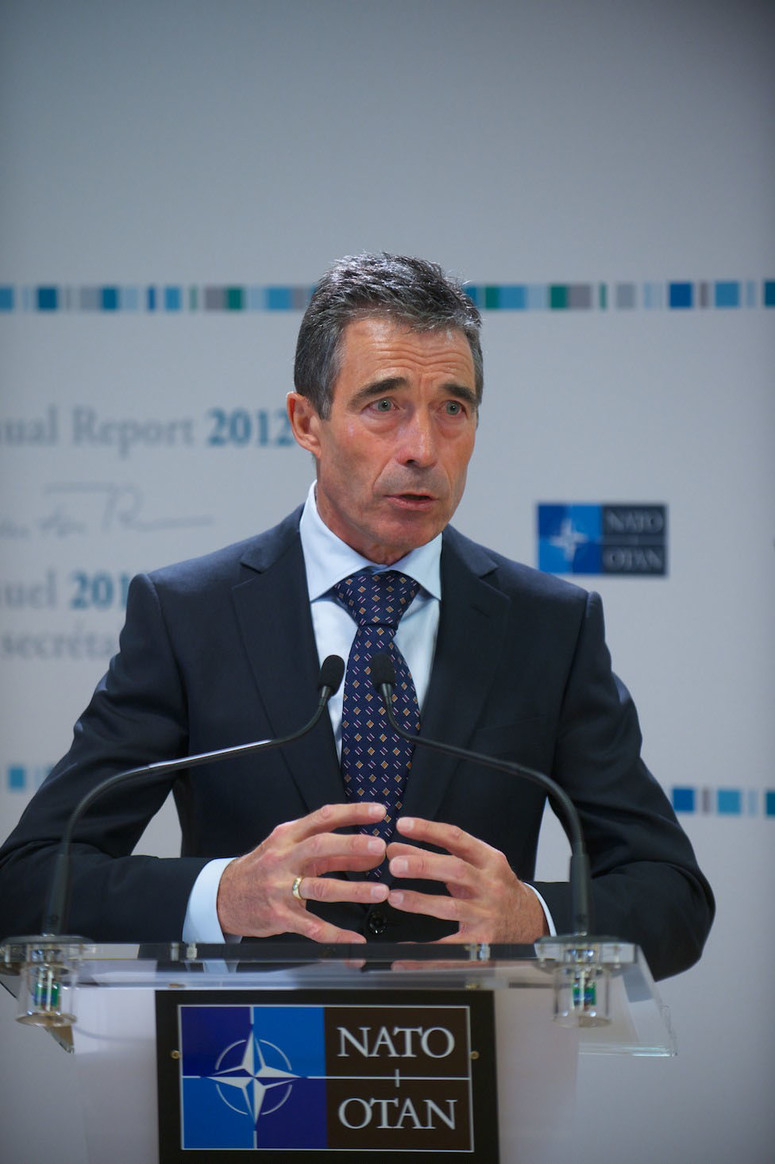Opening remarks by NATO Secretary General Anders Fogh Rasmussen
at the Secretary General’s Monthly Press Conference and launch of the Annual Report for 2012

Good morning.
We have started this New Year with a strong signal of solidarity with Turkey.
In December, NATO responded to Turkey’s request. And over the past few weeks we’ve seen Patriot batteries deployed along the Alliance’s south-eastern border. To protect and defend over three and a half million people.
This shows NATO’s steadfast commitment to the security of Allies.
And it shows why defence matters.
Comme vous pourrez le constater dans le rapport annuel que nous publions aujourd’hui, c’est un message que nous devons tous prendre au sérieux.
Le rapport montre où l’OTAN se situe aujourd’hui. Et il expose clairement les défis auxquels nous devrons faire face cette année et dans les années à venir.
La bonne nouvelle, c’est que, aujourd’hui, les capacités et la flexibilité de l’OTAN sont plus grandes que jamais. L’OTAN interagit davantage avec ses partenaires. Et l’OTAN est mieux préparée à faire face à des menaces imprévisibles.
Most Allies have significantly improved their ability to deploy and sustain forces in recent years. Overall, NATO investment in major modern equipment has risen. And despite the worst economic crisis in a generation, our commitment to key missions and key capabilities stays strong.
NATO remains the most important military power in the world. And our 28 Allies continue to account for over half of global defence spending.
However, defence spending among Allies is increasingly uneven. Not just between North America and Europe, but also among European Allies. And while total defence spending by the Allies in recent years has been going down, the defence spending of emerging powers has been going up.
If these trends continue, we will face serious gaps that would place NATO’s military capacity and political credibility at risk.
First, we could see a gap between the ability of different European Allies to deal effectively with crises on their door-step.
Second, the transatlantic gap would limit Europe’s ability to work with North America and weaken political support for our Alliance in the United States.
And finally, the rise of emerging powers could create a growing gap between the capacity of those nations to exert influence in the world and our own ability to do so.
Of course, governments must reduce deficits and borrowing. Sound fiscal policy is also sound security policy. Our security rests on our prosperity: you can’t be safe if you’re broke.
But in turn, our prosperity rests on our security. And we have to invest to keep our societies safe. Because security threats won’t go away while we focus on fixing our economies.
So this year, we face three tasks.
The first is to hold the line on defence investment. There is a lower limit of how little we can spend on defence, while living up to our responsibilities.
The second is to start closing the gaps, as our economies start to recover.
And the third is to build our strength in depth. This is an opportunity for all Allies to work more closely together to develop the capabilities we need. And for European Allies to do more to close capability gaps.
The decisions we take today on our defence spending will have an impact on the security of the next generation.
It is true that there is a price to pay for security. But the cost of insecurity is unacceptable. And as an Alliance we need to recognize this.
And with that, I am ready to take your questions.
